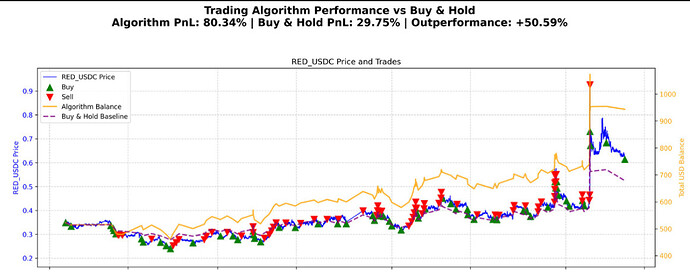Monday’s winner announcement will hand out $200K across winning teams. Congratulations, celebrate, cash the checks.
But here’s the question that separates hackathon demos from real businesses: If ai16z can trust AI agents with $25 million in autonomous fund management, which HyperHack projects could handle even $50K without human intervention?
Brutal reality check: Most winners will need humans to manually process their first paying customer.
The ai16z Standard Nobody’s Talking About
While HyperHack teams built demos, ai16z deployed $25 million under AI control. Not prototype money. Not hackathon prize money. Real institutional capital that AI agents buy, sell, and manage autonomously.
The difference isn’t technical—it’s trust.
ai16z’s AI agents handle money because they prove consistent decision-making under pressure. They don’t need human approval for trades. They don’t break when market conditions change. They operate independently with real financial consequences.
Question for Monday’s winners: Can your AI agent handle $1,000 without calling you?
The Financial Responsibility Test Most Projects Will Fail
Let’s run your HyperHack project through the autonomous fund management checklist:
✓ Can your AI agent execute financial transactions without human confirmation?
If users need to approve every action, you built a recommendation engine, not an autonomous agent.
✓ Does your agent handle edge cases when markets move fast?
Demo data doesn’t include flash crashes, network congestion, or unexpected protocol changes.
✓ Can it manage risk across multiple positions simultaneously?
Real money management isn’t about individual trades—it’s about portfolio-level decision making.
✓ Will it stop trading when something goes wrong instead of burning through capital?
The highest-value skill for autonomous agents: knowing when NOT to act.
Most HyperHack submissions optimize for showcasing capabilities. Financial management requires optimizing for not losing money, which is completely different engineering.
Why Hyperion Could Be Perfect for Autonomous Finance (If Anyone Builds It Right)
Hyperion’s parallel execution and AI-native architecture create ideal conditions for high-frequency autonomous trading. Sub-second execution times with AI inference built into the protocol.
But infrastructure advantages don’t matter if your AI agent can’t be trusted with real money.
The Builders Guild discussions about network effects miss this point: the most powerful network effect for AI agents is financial trust. Users will consolidate around agents that don’t lose their money.
The $50K Graduation Test
Here’s my challenge for Monday’s winners:
Take 10% of your prize money ($5K for a $50K winner) and let your AI agent manage it autonomously for 30 days.
No human overrides. No “emergency stops” when things get interesting. Just pure autonomous decision-making with real financial consequences.
Prediction: 90% of winners will refuse this test because they know their agents aren’t ready for financial responsibility.
The 10% that accept: Those are the projects with potential to compete with ai16z.
@Andrei - you’ve written about distributed accountability. How should autonomous agents prove financial trustworthiness without traditional oversight structures?
The Real Competition Isn’t Other HyperHack Projects
While winners compete for recognition, ai16z is building the standard for autonomous financial agents. $25 million in assets under management sets the bar impossibly high for projects that can’t handle their own prize money autonomously.
The opportunity: First Hyperion-native project to successfully manage real money autonomously becomes the ecosystem’s flagship financial AI.
The risk: Everyone builds demos while traditional finance adopts AI agents that actually work.
Question for projects waiting on Monday’s announcement: Will you use your prize money to build better demos, or prove your agent can be trusted with real financial responsibility?
Because there’s a massive difference between winning a hackathon and building something people trust with their retirement savings.
Which @hpi hackathon projects do you think would accept the $5K autonomous management challenge? Or is this an unfair test for hackathon projects?
